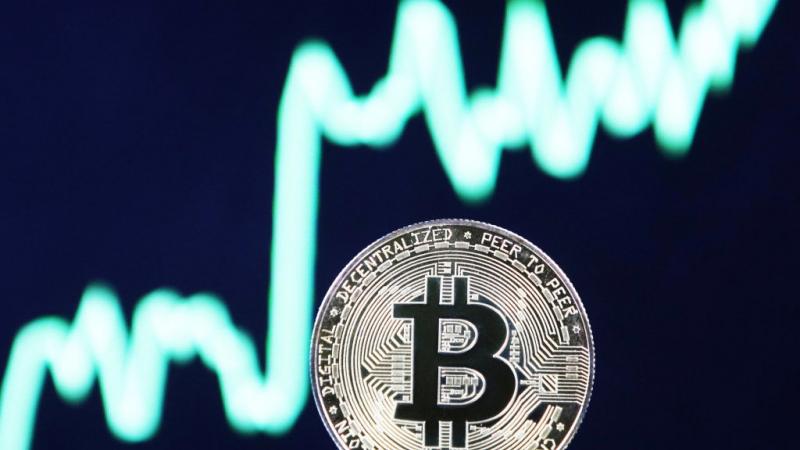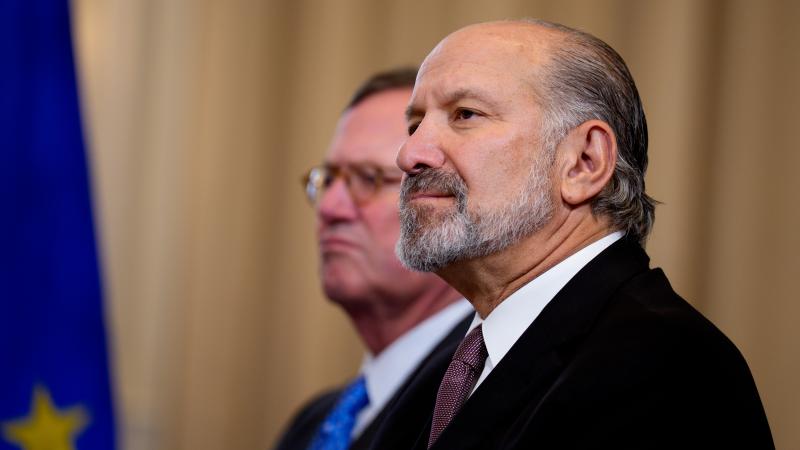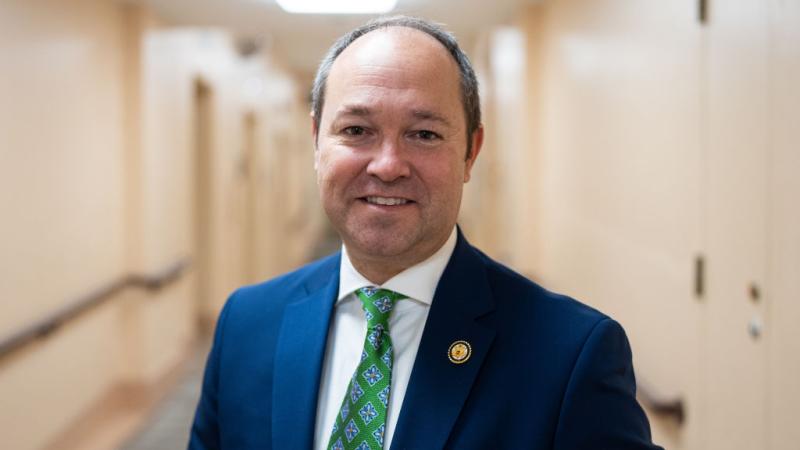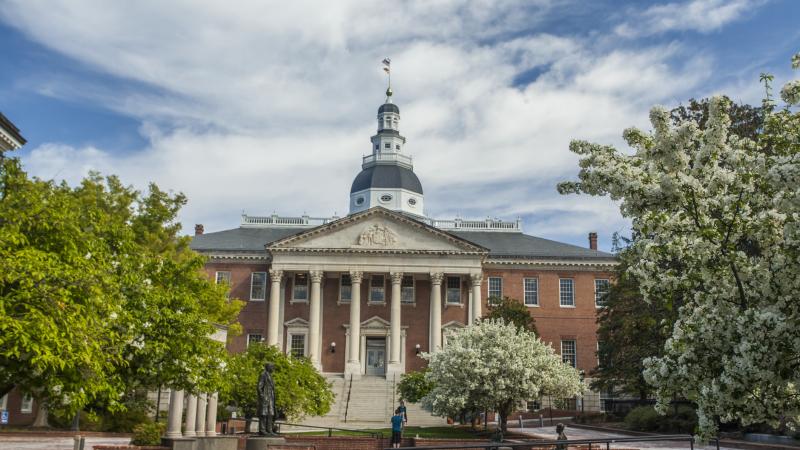Woke capital: How a liberal financial movement stokes fears of a surveillance state
'It's like a trojan horse of progressivism that is detrimental to our freedoms," Utah Treasurer Marlo Oaks says.
The rising influence of a woke investing movement that pressures companies to adopt left-wing political causes has policymakers and industry experts warning that the U.S. could be on the path to a Chinese model of monitoring the behavior of businesses -- and even individuals.
The movement called environmental, social, and governance (ESG) investing, which is based on the concept that investors should use these three broad categories when evaluating where to put their money, prioritizing progressive values and "social responsibility" when making financial decisions.
According to Utah Treasurer Marlo Oaks, one of the nation's leading voices pushing back against the movement, embracing ESG could end up restricting personal freedom and infringing on private enterprise.
"ESG undermines our democratic processes and free-market capitalism," Oaks told Just the News in an exclusive interview. "It could easily lead to individual ESG scores, like China's social credit system. Even worse, our system might include an individual carbon footprint. If you've driven too far in your gasoline-powered car, will your car privileges be suspended for a time?"
In China, the communist government has a "social credit system" that tracks and collects data on individuals, companies, and government entities to assess their trustworthiness. While the system is still disjointed and very much a work in progress, people and entities can be rewarded or punished based on certain behavior.
Last month the president of Alibaba Group, a major Chinese tech company, boasted at the World Economic Forum's annual meeting about the development of an "individual carbon footprint tracker" that will be able to track where people travel, how they travel, and what they eat. It's unclear whether such technology will be incorporated into the social credit system.
Oaks isn't alone in expressing fear that ESG could put the U.S. on the road to greater authoritarianism.
"We have concerns about the Chinese social credit system," Tim Stewart, president of the U.S. Oil and Gas Association, told Just the News last week while discussing ESG.
"This is the Biden White House trying to implement a carbon footprint social credit system, not only for publicly traded companies but for everybody that they work with. And it's very problematic. It extends the reach of government far greater than it ever should be."
The theory underpinning ESG is that corporations should deemphasize their traditional responsibility to maximize value for shareholders and instead make new commitments to alternative stakeholder groups, serving other interests and society at large.
Many investors now use ESG as a rating system to measure a company's advancement of policies designed to address climate change, increase corporate board diversity, and support a progressive "social justice" agenda, among other initiatives. ESG advocates seek to radically reduce carbon emissions and invest in renewable energy, hoping ultimately to eliminate fossil fuels.
ESG has become increasingly influential in recent years, and now enjoys prominence as one of the most popular trends in finance. Indeed, ESG has evolved into a $35 trillion industry, with that much in global assets being invested using ESG principles.
By 2025, global ESG assets are expected to exceed $53 trillion, representing more than one-third of the $140.5 trillion in projected total assets under management.
According to critics, however, the goal of ESG is not to make smart investments but rather to control the flow of capital in order to impose a political agenda.
"ESG is a score that measures compliance with a political agenda masquerading as an investment strategy," said Oaks. "It's like a trojan horse of progressivism that is detrimental to our freedoms."
ESG also "drives capital away from those who don't comply with that agenda," he said. "This is coercive, using the power of money and the coercion of capital to drive politics."
Oaks described ESG as being in opposition to free-market capitalism
"To be successful, ESG must take the market out of the market," said Oaks. "ESG requires a large number of investors and financial services companies to commit to the agenda. Otherwise, free-market capitalism would prevent the successful implementation of ESG. Why? If one company chose not to do business with a firm, another would step in and provide the service."
In other words, ESG needs a significant level of control to work because in a free market there are too many streams of capital that could undermine ESG's objectives.
In April, Oaks coordinated an effort by political leaders across the state to send a letter to S&P Global Ratings President and CEO Douglas Peterson demanding that S&P withdraw ESG indicators as a factor in its credit ratings for states and state subdivisions.
"ESG is about controlling and forcing behaviors," Oaks said in a statement at the time. "It attempts to do through capital markets what activists and their government allies have been unable to do through democratic processes. S&P should be concerned about whether investors will get paid back, not whether a state policy lines up with their political beliefs, whatever those may be."
Critics have described ESG as a subjective political weapon, rather than an objective investment measure, to punish businesses or even state governments that don't comply with certain environmental and social justice measures.
Oaks noted that Utah has a perfect "AAA" credit rating and expressed concern that if rating agencies incorporate ESG into their assessment, then Utah, a red state, could be penalized simply for not adhering to certain progressive values regardless of its actual financial situation.
A study by researchers at the Massachusetts Institute of Technology (MIT) and the Frankfurt School of Finance and Management found "widespread and repeated" changes to ESG scores, revealing significant unannounced and unexplained changes to the data.
"The incredible growth of sustainable finance has created a billion-dollar market for ESG data. Yet, we found that the data is not reliable or consistent. The changes made in ESG scores at any particular time in history are massive," said Florian Berg, a research associate at MIT.
"The score rewriting leads to large changes in what are deemed to be high or low ESG firms. This is important because the classification of firms is widely used in ESG research and the investment industry."
BlackRock CEO Larry Fink has been one of corporate America's biggest promoters of companies adopting ESG principles, saying in 2017, "Behaviors are going to have to change, and this is one thing we are asking companies: You have to force behaviors, and at BlackRock, we are forcing behaviors."
Fink has advocated companies focusing not just on making money for shareholders but also focusing on societal issues and a deeper "purpose."
Last year, BlackRock helped elect three climate-focused candidates to ExxonMobil's 12-member board, describing its vote as an effort to push Exxon to fight climate change. BlackRock is a major shareholder in the oil giant.
















